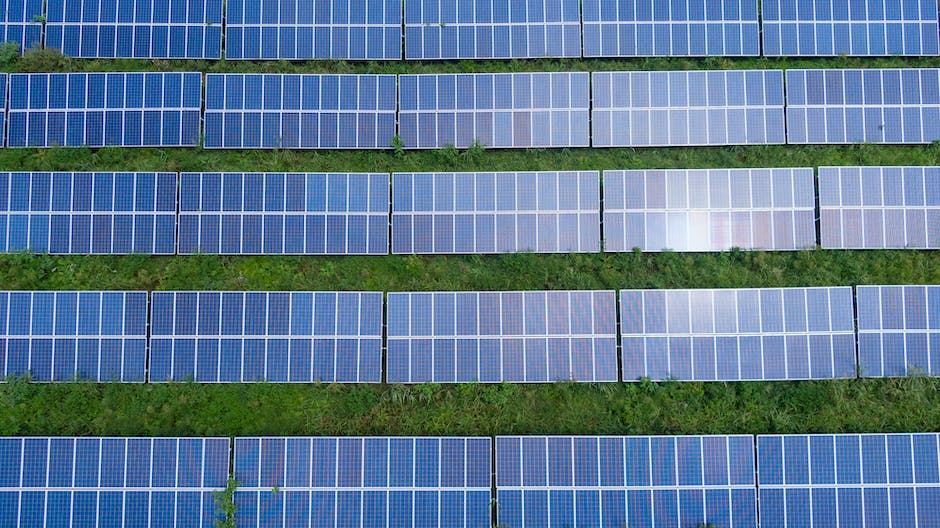In recent years, the global shift toward renewable energy sources has gained significant momentum. Governments around the world have recognized the urgent need to transition to clean and sustainable energy systems to combat climate change and reduce reliance on fossil fuels. As part of these efforts, many governments have implemented various solar programs to promote the adoption of solar energy among their citizens. These government solar programs aim to provide financial incentives, educational resources, and support to individuals and communities interested in harnessing the power of the sun.
In this article, we will explore the benefits and impact of government solar programs in helping those in need.
Understanding Government Solar Programs
Government solar programs are initiatives implemented by national, state, or local governments to encourage the use of solar energy. These programs typically involve a combination of financial incentives, grants, rebates, tax credits, and educational resources to make solar energy more affordable and accessible to individuals, businesses, and communities. By offering these incentives, governments aim to reduce the barriers to entry and accelerate the adoption of solar power, thereby contributing to the overall clean energy transition.
Types Of Government Solar Programs
Government solar programs can take various forms, depending on the specific objectives and priorities of the governing bodies. Here are some common types of programs:
Residential Solar Programs
Residential solar programs are designed to support homeowners in installing solar panels on their properties. These programs often provide financial assistance, such as rebates or low-interest loans, to help offset the upfront costs of solar installations. Additionally, they may offer net metering policies that allow homeowners to sell excess electricity generated by their solar systems back to the grid, further reducing their energy bills.
Community Solar Programs
Community solar programs enable multiple participants, such as neighbors or members of a community, to collectively invest in a shared solar installation. These programs are particularly beneficial for individuals who cannot install solar panels on their own properties due to various reasons, such as shading or rental agreements. Participants in community solar programs typically receive credits or discounts on their electricity bills based on their share of the solar installation's output.
Solar Incentives For Low-Income Households
To ensure that solar energy benefits all segments of society, many government solar programs include specific incentives targeting low-income households. These programs offer financial assistance, grants, or subsidized solar installations to help low-income individuals and families reduce their energy costs and alleviate energy poverty. By providing access to clean and affordable energy, these programs contribute to a more equitable and sustainable society.
Commercial And Industrial Solar Programs
Government solar programs also extend their support to businesses, industries, and non-profit organizations. These programs offer incentives, tax credits, and grants to encourage the adoption of solar energy systems in commercial and industrial settings. By facilitating the transition to solar power in these sectors, governments promote sustainable business practices, reduce carbon emissions, and create green jobs.
Benefits Of Government Solar Programs
Government solar programs offer a range of benefits for individuals, communities, and the environment. Let's explore some of these benefits:
Financial Savings
One of the primary advantages of participating in government solar programs is the potential for significant financial savings. Solar energy systems generate electricity from the sun, reducing the reliance on traditional utility providers. By installing solar panels, individuals and businesses can substantially lower their energy bills over the long term. Government incentives further enhance these savings by offsetting the initial investment costs.
Environmental Impact
Solar energy is a clean and renewable source of power that produces minimal greenhouse gas emissions compared to fossil fuels. By encouraging the adoption of solar energy through government programs, carbon emissions can be significantly reduced. This transition to cleaner energy sources contributes to mitigating climate change and improving air quality.
Energy Independence
Government solar programs empower individuals and communities by enabling them to produce their own electricity. This energy independence reduces dependence on external energy sources and provides a more reliable and resilient energy supply. In areas prone to power outages or natural disasters, solar energy can serve as a lifeline, ensuring essential services remain operational.
Job Creation And Economic Growth
The widespread adoption of solar energy supported by government programs stimulates job creation and economic growth. The solar industry requires skilled professionals in various fields, including installation, maintenance, research and development, and manufacturing. By investing in solar programs, governments foster the growth of a green economy, generating employment opportunities and attracting investments.
Social Equity
Government solar programs that prioritize low-income households and underserved communities contribute to social equity. These programs help alleviate the energy burden on vulnerable populations, reduce energy poverty, and create more equitable access to clean and affordable energy resources. By addressing energy disparities, governments promote social inclusivity and ensure a sustainable future for all.
Government Solar Programs Promoting The Adoption Of Solar Energy
Government solar programs play a crucial role in promoting the adoption of solar energy and accelerating the global transition to a sustainable future. Through financial incentives, grants, and educational resources, these programs empower individuals, businesses, and communities to harness the power of the sun and reap the numerous benefits of solar energy. By supporting government solar programs, individuals can contribute to a cleaner environment, enjoy financial savings, and help build a more resilient and equitable society. Embracing solar power is not only a personal choice but also a collective effort toward a greener and brighter future.
Learn more about going green by checking out our guide on claiming your solar tax credit. Visit Gov Relations to learn more now.







